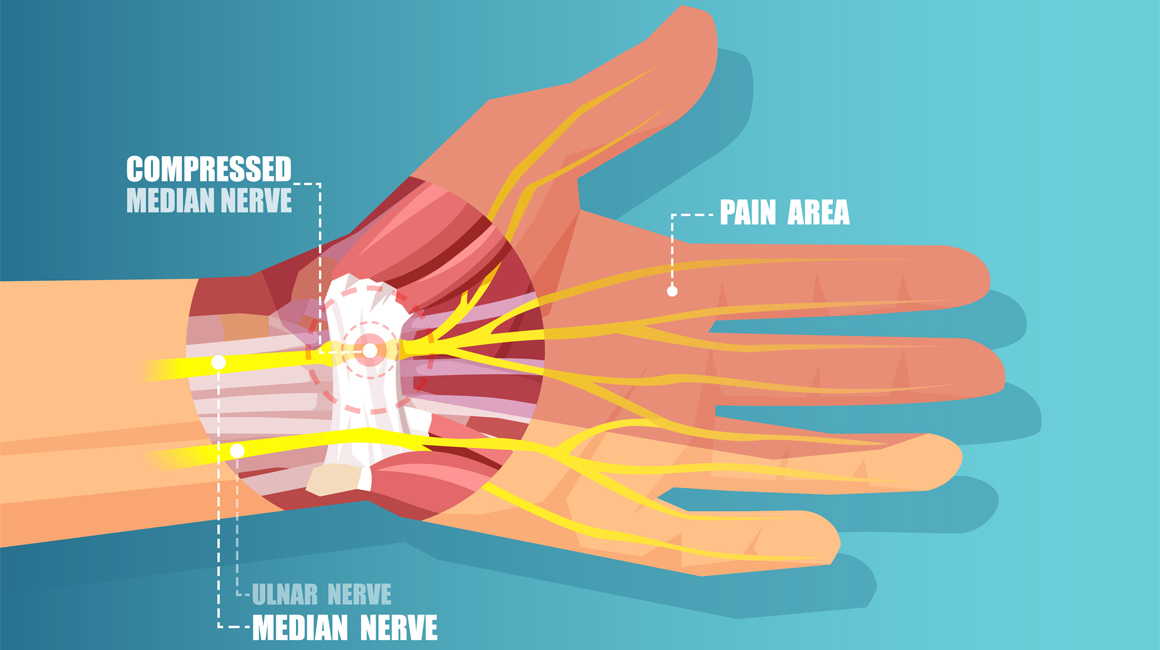
Carpal Tunnel Syndrome
Carpal tunnel syndrome is a common condition that causes pain, weakness and tingling in your hand and wrist. It happens when one of the major nerves to the hand is squeezed or compressed as it travels through the wrist. Carpal tunnel syndrome gets worse over time, therefore early diagnosis and treatment are important. Women are three times more likely than men to develop carpal tunnel syndrome.
Symptoms
Symptoms of carpal tunnel syndrome may include:
- Numbness, tingling, burning and pain in your palm and thumb or index and middle fingers
- Occasional shock-like sensations that move into your fingers
- Weakness in your hand and trouble holding things
- Tingling that may travel up to the forearm
Causes
Carpal tunnel is caused by pressure on the median nerve, which runs the length of your arm, goes through a passage in your wrist, and ends in your hand. Most cases of carpal tunnel syndrome are caused by a combination of factors. Risk factors for carpal tunnel syndrome include:
- Obesity
- Injuries and trauma to your wrist, like a sprain or break
- Repetitive hand motions
- Inflammatory arthritis such as rheumatoid arthritis when your wrist is swollen
- Metabolic disease such as diabetes and thyroid disease
Treatment
Identifying carpal tunnel syndrome in the early stages is important. Your Rheumatologist may prescribe the following treatments:
- Splint to immobilize the wrist
- Physical therapy for specific exercises to strengthen and stretch wrist and ultrasound guided therapy
- Corticosteroid injection into the carpal tunnel to reduce inflammation
Opening Hours
Monday – Thursday: 7:30AM to 4:30PM
Friday: 7:30AM to 3:30PM
Saturday – Sunday: Closed

